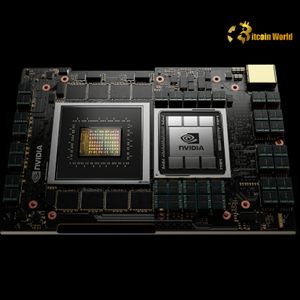BitcoinWorld Nvidia Suffers Billions in Revenue Loss Due to US Chip Restrictions For anyone following the intersection of technology, global politics, and markets – which increasingly includes the cryptocurrency world due to the heavy reliance on high-performance computing – recent news from Nvidia is significant. The tech giant, synonymous with powerful processors, has reported substantial financial impacts directly linked to government policy, specifically US export restrictions on advanced technology. Understanding Nvidia’s Revenue Loss Nvidia recently released its earnings report for the first quarter of fiscal year 2026, covering the period up to April 28th. While the overall financial health of the company remains robust in many areas, one particular challenge stood out: the financial toll imposed by export controls. The company disclosed that it incurred a significant charge of $4.5 billion in Q1. This charge is directly attributed to licensing requirements that affected Nvidia’s ability to sell its H20 AI chip to customers in China. On top of this charge, Nvidia also reported that it was unable to ship an additional $2.5 billion worth of H20 revenue during the quarter because of these same restrictions. Putting these numbers into perspective: Q1 Charge: $4.5 billion (due to licensing requirements) Q1 Unshipped Revenue: $2.5 billion (due to restrictions) Total Q1 Impact: $7 billion This Q1 impact was even higher than the company’s initial expectation of $5.5 billion when the licensing requirement was first announced in April. Looking ahead, the picture doesn’t immediately improve. Nvidia also forecasted that these H20 licensing requirements are expected to result in an even larger hit to revenue in the second quarter. The company predicts an $8 billion impact in Q2, against an estimated total revenue of around $45 billion. This clearly represents a substantial challenge to their top line. The Impact of US Export Restrictions The core issue stems from the United States government’s push to limit the export of advanced semiconductors, particularly those designed for artificial intelligence applications, to certain countries, most notably China. These restrictions are part of a broader strategy aimed at slowing down the technological advancement of geopolitical rivals. Nvidia, as a leading designer and supplier of these advanced processors, finds itself directly in the crosshairs of this policy. While the company has developed specific chips, like the H20, designed to comply with some restrictions, the licensing requirements and outright inability to ship certain products still create significant hurdles and financial losses. The company has expressed its concerns regarding these restrictions, arguing that they impact its business and the global technology ecosystem. Nvidia’s CEO, Jensen Huang, has publicly commented on the complex policy landscape, including praising a recent decision to scrap a proposed rule that would have imposed further restrictions. Why AI Chips Are at the Center The focus of these export controls is heavily placed on AI chips because they are considered critical infrastructure for developing and deploying advanced artificial intelligence capabilities. These processors, particularly high-performance GPUs like those designed by Nvidia, are essential for training complex AI models and powering large-scale AI applications. Governments imposing these restrictions view control over these chips as a way to influence the pace and direction of AI development globally. For companies like Nvidia, this means that products they have spent years developing and which are in high demand are suddenly subject to complex political and regulatory barriers, directly impacting their market access and profitability. Navigating the China Market The China market is one of the largest and most important markets globally for high-performance computing and AI technology. For years, it has been a significant source of revenue for Nvidia and other semiconductor companies. The current export restrictions fundamentally alter the dynamics of operating in this region. Nvidia is now forced to navigate a complex environment where it must comply with US regulations while attempting to serve customers in China, often by developing modified products that fall below certain performance thresholds set by the restrictions. The substantial revenue loss reported highlights the difficulty and cost associated with this challenge. The future strategy for engaging with the China market under these constraints remains a critical factor for Nvidia’s long-term financial performance. Nvidia’s Future Under Policy Headwinds Despite the headwinds created by the US export restrictions and the resulting revenue loss , Nvidia continues to be a dominant player in the global AI and computing markets. However, the financial impact underscores how geopolitical factors can significantly influence even the most successful technology companies. The company’s ability to adapt its product offerings, secure necessary licenses where possible, and find alternative growth markets will be key to mitigating the ongoing effects of these policies. While the demand for AI chips remains incredibly high globally, the specific challenges in the China market present a unique and costly obstacle that Nvidia must continue to address. In conclusion, Nvidia’s recent earnings report provides a clear picture of the tangible financial consequences of US government policy on the technology sector. The billions in lost and restricted revenue serve as a stark reminder of the complex interplay between global politics, technological innovation, and market access in the critical field of artificial intelligence. To learn more about the latest AI market trends, explore our article on key developments shaping AI features. This post Nvidia Suffers Billions in Revenue Loss Due to US Chip Restrictions first appeared on BitcoinWorld and is written by Editorial Team



















